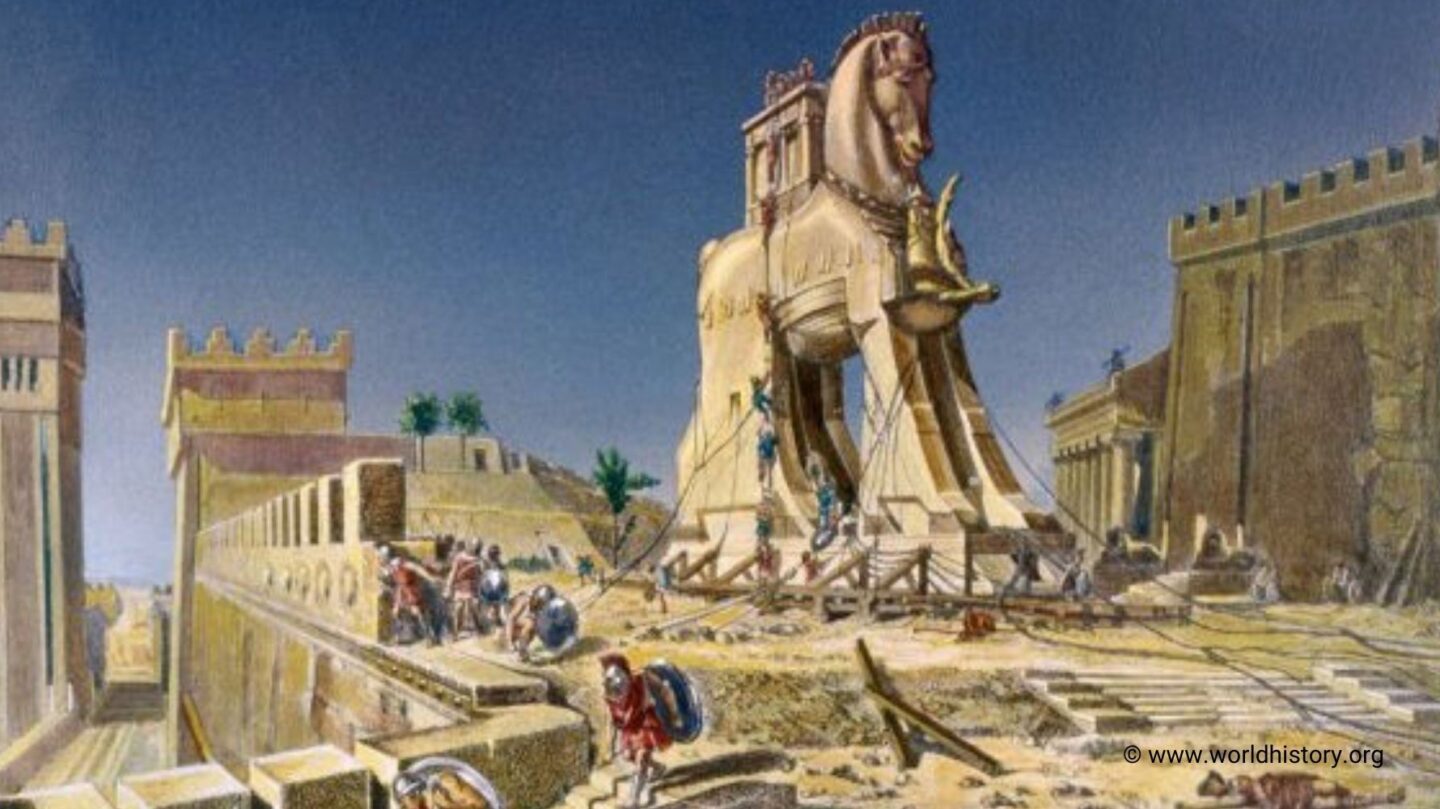The Myth of the Trojan War
The Trojan War is one of the most enduring tales from ancient Greek mythology, immortalized in Homer’s epic poems The Iliad and The Odyssey. According to legend, the war began after Paris, a prince of Troy, abducted Helen, the wife of Menelaus, king of Sparta. This act sparked a decade-long conflict between the Greeks and Trojans, culminating in the cunning Greek ploy of the Trojan Horse, which led to the fall of Troy.
While Homer’s works provide vivid and poetic descriptions of the war, they were written centuries after the events they claim to depict. This raises a critical question: Was the Trojan War a historical event, or is it purely a myth?
Evidence for a Historical Basis
The possibility of a historical Trojan War gained traction in the 19th century with the discovery of the ancient city of Troy. German archaeologist Heinrich Schliemann excavated a site in modern-day Turkey, identified as Hisarlik, which matched descriptions of Troy in ancient texts. The ruins revealed evidence of a city that was destroyed and rebuilt multiple times, suggesting a history of conflict.
Subsequent archaeological findings, such as fortifications, weapons, and evidence of fires, support the idea that a significant battle or series of battles occurred in the region around 1200 BCE. This period coincides with the Late Bronze Age, a time marked by widespread warfare and upheaval across the Mediterranean.
However, while these findings hint at a historical basis for the Trojan War, they do not confirm the specific events or characters described in Homer’s epics.
Separating Fact from Fiction
Homer’s account of the Trojan War blends historical elements with mythological embellishments. The involvement of gods and goddesses, such as Athena, Apollo, and Zeus, reflects the Greeks’ belief in divine intervention in human affairs. The famous Trojan Horse, while a compelling story, lacks archaeological evidence and may be a later addition to the legend.
Some historians propose that the Trojan War may not have been a single conflict but rather a series of skirmishes between Mycenaean Greeks and Anatolian cities. These clashes could have inspired the myths that were later compiled into a cohesive narrative.
Additionally, the abduction of Helen may symbolize a broader struggle over trade routes and resources. Troy’s strategic location near the Dardanelles, a crucial waterway connecting the Aegean and Black Seas, would have made it a valuable and contested city.
The Cultural Impact of the Trojan War
Regardless of its historical accuracy, the Trojan War has left an indelible mark on Western culture. Homer’s Iliad and Odyssey are foundational texts of Greek literature, exploring timeless themes of heroism, loyalty, and the consequences of war. The characters of Achilles, Hector, and Odysseus have become archetypes of bravery, honor, and cunning.
The story of the Trojan War also inspired countless works of art, literature, and drama throughout history, from Virgil’s Aeneid to modern adaptations in film and theater. Its enduring appeal lies in its blend of human drama and larger-than-life mythology.
Myth or Reality?
The Trojan War occupies a unique space between history and myth. While archaeological evidence suggests that a conflict resembling the war may have occurred, the details remain shrouded in mystery and poetic license. The story’s blend of fact and fiction has allowed it to endure for millennia, captivating audiences with its drama and intrigue.
Whether as a historical event or a mythical tale, the Trojan War continues to inspire us, serving as a reminder of the power of storytelling to shape our understanding of the past.
